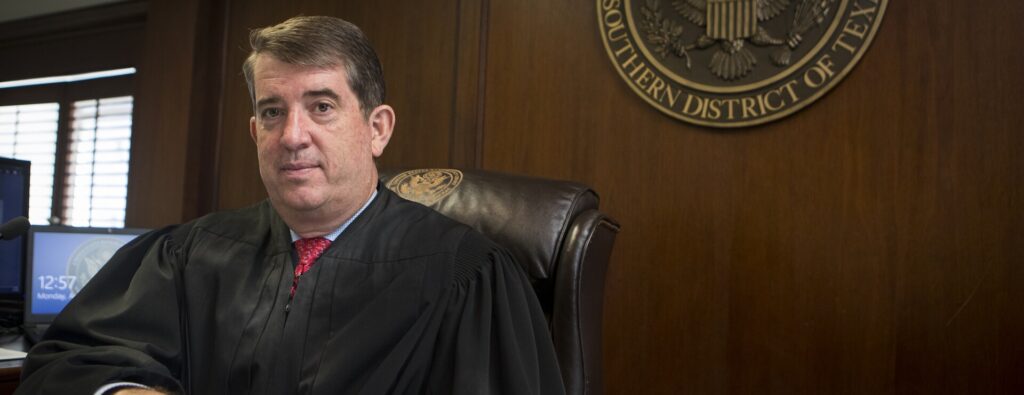A federal judge declined to disqualify an attorney accused of paying for his client’s living expenses, an alleged violation that will be referred to the Disciplinary Committee for further evaluation.
U.S. District Judge Wendy Beetlestone of the Eastern District of Pennsylvania held that the issue of counsel paying for their client’s living expenses didn’t warrant disqualifying the attorney, concluding a potential ethical violation didn’t require disqualification.
In a Jan. 10 opinion, the court denied defendant Tasty Baking Co.’s motion to disqualify plaintiff Jose Ayala Sr.’s counsel, who is alleged to have been paying for the plaintiff’s living expenses, referring the matter to the disciplinary committee to investigate the potential ethics violation.
Ayala was employed by defendant Tasty Baking Co. when he was seriously injured on the job and became disabled, later being subjected to discrimination and harassment by the defendants. Ayala went on to file suit, bringing counts related to hostile work environment, discrimination, and retaliation under various federal, state and local laws.
According to the court, during the process of litigation, a conference was held with the parties, where Ayala’s counsel, Seth Carson, mentioned he had been paying for Ayala’s hotel because of his “unstable” living situation.
Tasty Baking went on to file a motion to disqualify Carson on the grounds that he was paying for Ayala’s living expenses, which it argued violated Pennsylvania Rule of Professional Conduct 1.8.
It argued that Rule 1.8(e) provides that, “A lawyer shall not provide financial assistance to a client in connection with pending or contemplated litigation, except that: 1. a lawyer may advance court costs and expenses of litigation, the repayment of which may be contingent on the outcome of the matter; and, 2. a lawyer representing an indigent client may pay court costs and expenses of litigation on behalf of the client,” the opinion said.
The parties disputed the extent to which Carson was paying for Ayala’s living expenses, with Tasty claiming he was paying for Ayala’s housing and had been doing so for at least two months. However, Carson contended he “never paid for his client’s living expenses,” and that “all expenses paid for were litigation expenses connected to the litigation of this case.”
Ayala had lost his home and was living “indigent[ly] in Atlantic City,” and hadn’t had transportation to Philadelphia or a place to stay, Carson said, explaining he therefore “cover[ed] the cost of travel and accommodations for this time period,” which were temporary expenses for the purpose of deposition preparation and attendance, which spanned less than two months.
“The ethical considerations underlying rules on attorneys’ paying their clients’ living expenses aim to prevent financial entanglements that incentivize frivolous litigation (or at least that may monetarily incentivize litigants to make litigation decisions they might not otherwise make),” Beetlestone noted.
However, she ruled that given the factual record, disqualification wasn’t currently warranted.
The court cited its 1999 ruling in Shade v. Great Lakes Dredge & Dock Co., which addressed Pennsylvania Rule 1.8(e) in the context of a client’s living expenses, noting the decision’s key principle that disqualification wasn’t warranted, “even if an ethical rule was violated—when it ‘is not necessary to effectuate the purposes of the rule or protect the integrity of the legal process’ in a particular case.”
“Here, the Court is not convinced disqualification would be necessary to effectuate the purposes of Rule 1.8, even if it were clear beyond dispute that Carson violated it. Shade also urges caution where, as here, a party ‘argues for disqualification based solely on its expressed concern for the legal system and for [the client of the attorney in question] but does not suggest that its own ability to prepare for trial or present its case will be hampered,’” Beetlestone said.
She further noted that the court in Shade had said it couldn’t envision “any public interest that would outweigh Shade’s interest in continuing to work with [his attorney]; in fact, the danger of public dissatisfaction with the legal process appears to be greater from the last[-]minute disqualification of an attorney who apparently provided housing for a client who was faced with dire financial circumstances.”
And as there were factual contradictions between the parties, the court referred the matter to the district’s disciplinary committee for evaluation and to investigate a potential ethics violation.
K. Clark Whitney of Ogletree Deakins, who represented defendants Tasty Baking Co., Jack Garrett, Christine Johnson and Haley Angeline, and Ayala’s attorney, Carson of Derek Smith Law Group, did not immediately respond to requests for comment.
law.com




